"Panorama": The People Can't Gather Again
Entry: panopticism
Panopticism is not just discipline under surveillance, it is also the suppression of group mobility.
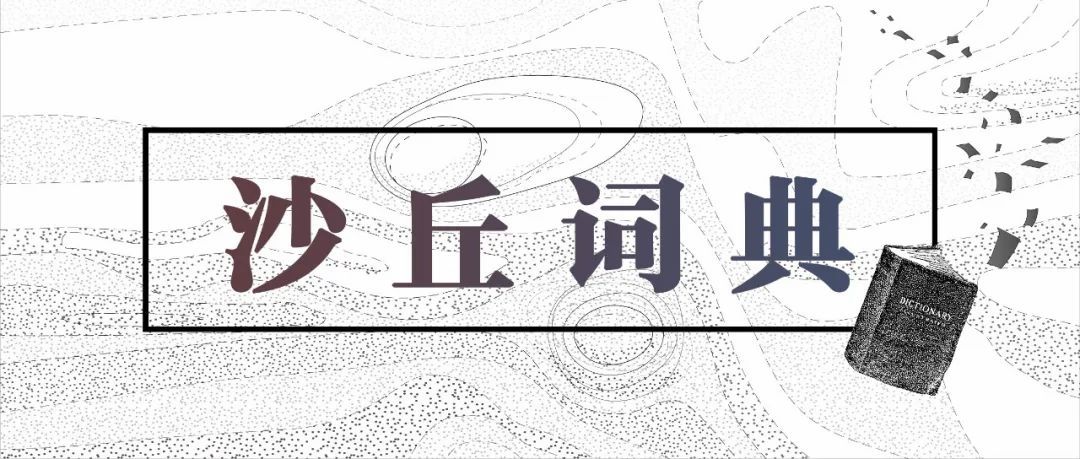
Dune Dictionary Album Link (click to jump)
How to turn a group of savages into modern humans?
Step 1, put them in a small compartment;
Step two, let them know that their actions are being monitored;
Step three, isolate them so they don't come together in groups.
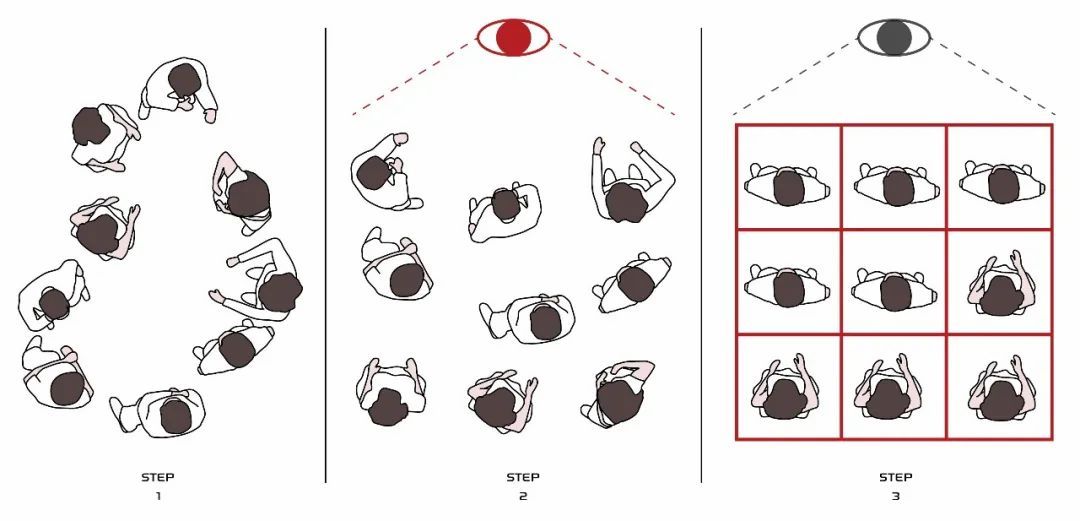
The above-mentioned process of transformation or indoctrination can be used as a simplified generalization of the "panopticism" in Michel Foucault's Discipline and Punishment.
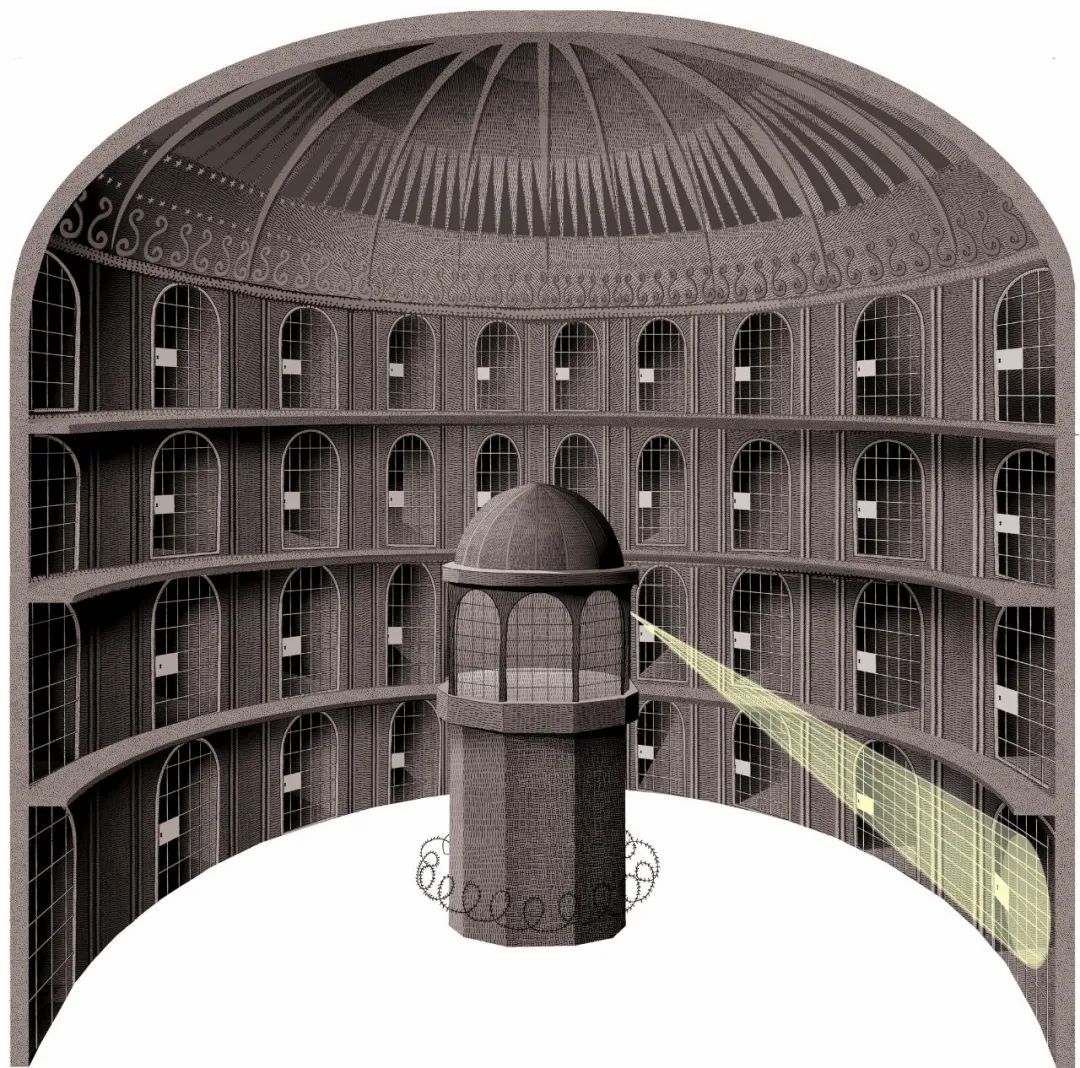
1. As a medical certificate or instruction manual
As an unconventional thinker, Foucault writes "easy to feel but hard to pin down." This technique of power—or spatial boilerplate—seems to be both a manual and a diagnosis. Its significance as a manual responds to the question at the beginning of the article: how to transform a group of turbulent, barbaric, impulsive "rabble people" into orderly, manageable and productive modern people? And as a diagnosis, it answers the question: If modern society seems so orderly and beautiful, why are so many of them feeling so anxious and depressed?
If you go back to the original text in which the concept was proposed, it is not difficult to see that Jeremy Bentham's original article "Panopticon: or the Inspection House", originally written in 1787, apparently appeared as a manual— — it was a proposal, a design, a utopian vision (Jeremy Bentham’s brother, Samuel Bentham, who was the first proponent of the Panopticon, strictly speaking, observed "central inspection principle" in Russian factories. Jeremy Benthamian later used this principle in his prison proposal.)
Foucault's Discipline and Punishment, written some 200 years later, appeared as a diagnosis . Especially in the chapter of "Panorama", French scholars re-excavated the prison plan envisaged by the British jurist, and pointedly pointed out that the "rehabilitation house" proposed by Bentham should not be regarded as a strict sense. As an abstract model, it has become an overwhelming situation in modern Western society at that time - far from just prisons, the "panorama model" has been widely used in mental hospitals, factories, schools , in the office... So in the 1970s, reintroduced by Foucault, the Panopticon as a discourse became more of a chilling, dystopian social critique. Today's architectural category or wider academic circles follow Foucault's textual meaning. When we use this concept, we basically use it as a synonym for "white terror" and "spiritual slavery", referring to the unfortunate situation of modern people who are controlled by authoritarianism and manipulated by rules.
2. The Panopticon "dissolves the gathering scene"
This prestigious academic concept has increasingly entered popular, public discourse because of its highly accurate description of the current state of society. But it should be noted that the interpretation of "panopticism" in a large number of articles today seems to have a certain narrowness in many cases - people are more fascinated by the "big brother is looking at you" part of this space template, and also This is the second step in our simplified scenario at the beginning.
It can be understood that the root of the word "panopticon", "pan- (all, full)" and "optic (seeing, to see)" together means "all-seeing, unobstructed ", which is actually the same as another word. " omniscient , all-knowing, all-powerful" is very similar in composition (the latter is also from "omni-, all" and "scire, knowing").
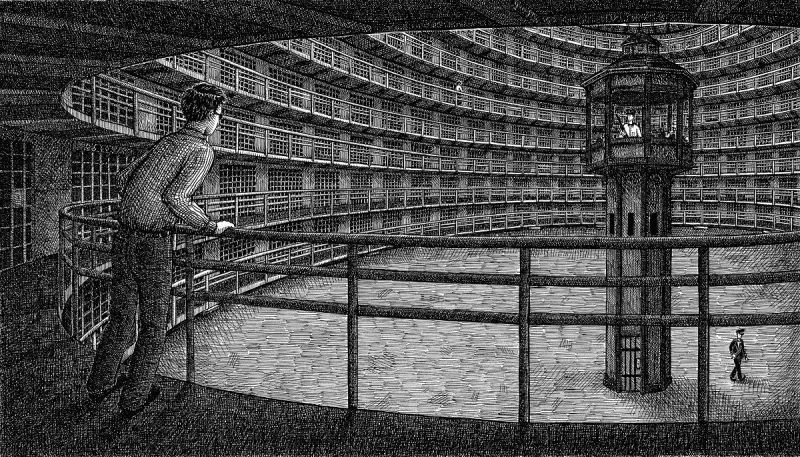
So the vocabulary itself emphasizes the status of the watchtower at the center. Therefore, for this concept, many discussions also detail that individuals are stared at all the time, and they dare not deviated from their behavior, so that in the end, even if the manager is absent, the individual will continue to "self-gazing" and "self-management" Case. In the current world, perhaps because of the intensive monitoring system and the common censorship mechanism, the writer mainly uses the classic relationship of "seeing and being seen" in the Panopticon to interpret reality.
But that's not all "panopticism" is all about.
His room was arranged to face the central watchtower, which gave him a centripetal visibility. But the division of the ring building into cells implies a kind of lateral invisibility.
—Foucault, Discipline and Punishment, Panopticism
Another equally, even more important element is the third step in the simplified scene at the beginning: in the panopticon, each individual is trapped in absolute isolation, unable to communicate with each other, unable to Holding a group, cannot cohere together into a so-called "group". So this technique of power will ensure that these individuals are always on the passive side of the hierarchy and will never be able to reverse this relationship; from the point of view of communicative theory, it kills "discussion" and eliminates the possibility.
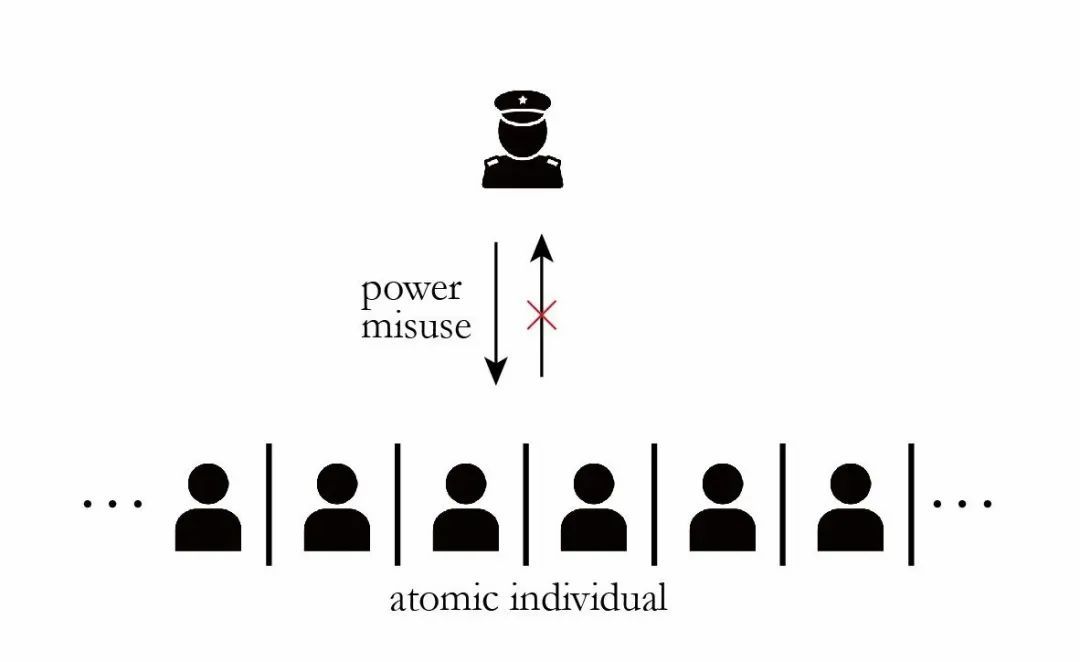
Why do you have to break people up? Why must they be prevented from gathering together to form a public? At this point we might as well go back to Bentham's time. At the end of the 18th century, the jurist was so excited about his excellent proposal that he took it around to sell it. He is not a "crazy evil scientist", and his conception of this space is clearly not purely "evil" intentions. Instead, Bentham saw it as a benign "remodeling house". He envisioned a place where sick, deviated, sinful people and ideas would be transformed by ideas of order, reason, and morality, a catalyst that would take us to civilization.
The scene of people connecting and gathering together will always make those in power vigilant, because compared with scattered individuals, groups are "powerful". We also need to understand that not the "masses" formed by individuals gathered together will be noble, moral, follow the highest beliefs, and willing to sacrifice themselves "great masses". When individuals come together, an independent "group spirit" seems to be controlling the individuals, so as to release a kind of animal energy that is almost suppressed by the individuals in ordinary times.
"The democratic power of the masses, like all personal power, can easily turn into its opposite, a tyrannical power, when it is not properly restrained by the constitution." Ways suddenly disappear, primal impulses, childish behavior and criminal tendencies burst out.” In other words, when individuals come together to form a mass, each individual may inevitably become more savage, less intelligent, and more violent than usual.
In this context, it is probably not difficult to understand why disciplinary technology can be called a great invention of modern society, and why we are trying to argue that "atomicization" is at the heart of it - if the gathering of rabble is very The high probability will bring chaos and loss of control, then, it seems that only by isolating them from each other and putting them into predictable small grids can they further become orderly and civilized; The original savage, impulsive and martial body of human beings has become a productive and specific labor force. Only then was the terrifying latent energy of the masses suppressed.
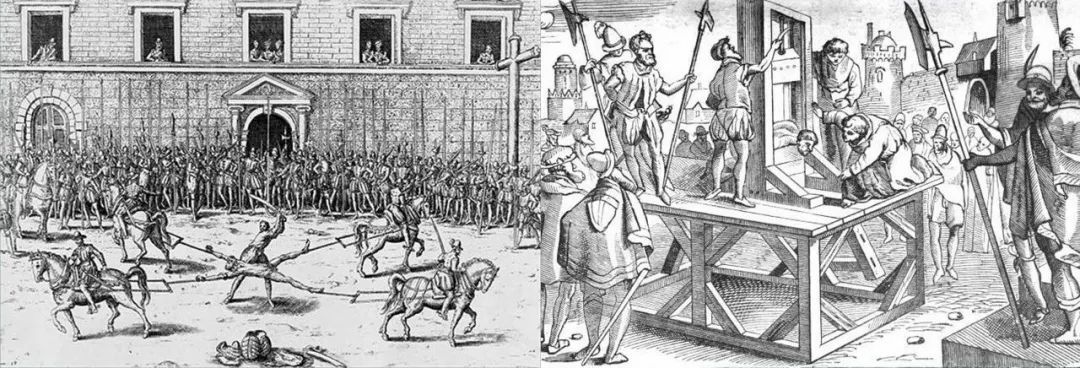
In fact, Foucault has already mentioned the enormous potential threat to the power of the monarchy from this "turbulent crowd" in the chapter "Scene of the Guillotine", which precedes Panopticism. The sovereign does indeed declare/show off his indisputable supremacy to the people under his rule by publicly and brutally executing the prisoner, but at another level, the act draws out a temporary state of exception at a deeper level— -At this time, because of the unquestionable death, the prisoner as "notorious" was allowed to curse the king, the law and the religion with impunity in the last few minutes, while through enthusiastic applause and clamor, the watching crowd To a certain extent also a participant in this brief revolt. In front of the "splendid" guillotine of the scene, everyone realizes their destined powerlessness and insignificance in the face of such unparalleled power and unrestricted legal violence that controls life. To the individuals who witnessed the "Grand Ceremony" of the death penalty.
"Scene of the guillotine" is a performance of power in ritualized and commemorative occasions, in which the majority surrounds a privileged few; while "panopticism" is transformed into everyday life , with a privileged minority watching over the majority. Obviously, the former is still too dangerous for the holders of power, and it may even lead to revolutions in some cases; the latter is undoubtedly smarter, more efficient and more sustainable. There has been a great turn from pre-modern to modern displays of power.
The huddled crowds, the venues of multiple exchanges, the mingled personalities, the collective effect are eliminated and replaced by a collection of isolated personalities.
—Foucault, Discipline and Punishment, Panopticism
Foucault has repeatedly stated that he was strongly influenced by Nietzsche's philosophy. Nietzsche's "homo natura" and the so-called "mass blindness/gangster" written in "On the Genealogy of Morality" can indeed add a footnote to "the birth of the prison". In that primitive state of nature, human beings are jungle gamers who are whims, reckless, and respect the strong, "slaves of instantaneous emotions and desires", and "a group of golden-haired carnivores" who kill the weak. In that situation, life is filthy, beastly, and short. In order to prevent us from falling into such an unfortunate "state of endless war", we must exercise control over this crude and savage primitive human nature, and must have the tameness of civilized order - in Nietzsche's words, for People put on "social straitjackets".
3. A scheme that is both beautiful and insidious
As a result, two states are opposed—on the one hand, the natural, primitive, free gathering but also potentially turbulent, low-minded, violent and dangerous, and on the other hand, modern, civilized, docile, but also isolated and repressed. state. When Jeremy Bentham realized the existence of this multiple-choice question, he gave his own answer.
Improve morality, protect health, revitalize industry, popularize education, reduce public burden...all these can be achieved through a simple architectural concept!
Morals reformed-health preserved-industry invigorated-instruction diffused-public burthens lightened-Economy seated, as it were, upon a rock-the gordian knot of the Poor-Laws not cut, but untied-all by a simple idea in Architecture!
—Bentham, Panopticon, Chapter 4
For a social reformer who radiated later generations with a utilitarian philosophy, Bentham believed that the highest purpose of social progress is only one - to achieve "the greatest happiness of the greatest number of people", and this is the core gist of the modern welfare state.
But this visualization is clearly an ethics accomplished by a seemingly quantifiable calculus of "pleasure" and "pain", that is, he assigns an answer (forcibly) to the above-mentioned multiple-choice question. This is a now-seemingly dangerous tendency— it turns out that some things can be sacrificed, as long as some more important "pleasure" can be achieved. In the Panopticon scheme, this calculation of addition and subtraction is very obvious. "The free spirit and vitality of the people" was sacrificed in exchange for "the docility, tranquility and order of the people". Because to Bentham, the latter represented "the interests of the greatest number", even if it came at the cost of surveillance, isolation, mental slavery and mind control.
. . . Will the free spirit and dynamism of a free citizen be replaced by the mechanical discipline of a soldier, or the penance of a monk?—Could the result of this highly ingenious invention be the creation of a set of nearly human machine?
. . . Does happiness increase or decrease under such a criterion? —call them soldiers, call them monks, call them machines: as long as they're happy, I don't care.
...whether the liberal spirit and energy of a free citizen would not be exchanged for the mechanical discipline of a soldier, or the austerity of a monk? - and whether the result of this high-wrought contrivance might not be constructing a set of machines under the similitude of men? ...Would happiness be most likely to be increased or diminished by this discipline? - Call them soldiers, call them monks, call them machines: so they were but happy ones, I should not care.
—Bentham, Panopticon, Chapter 4
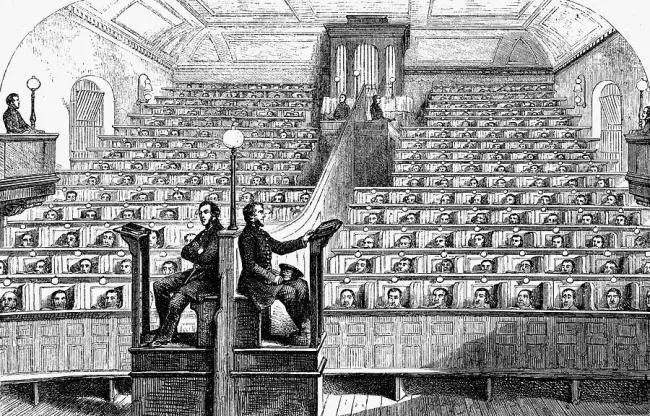
It can be said that when this space model was first proposed, it seemed to have the dual nature of utopia and dystopia. That's why Foucault describes it as "a cruel and ingenious iron cage" , and why James Miller, the writer of Foucault's biography, who truly understands the intricacies of this technology of power, is sincere Lamented that it was "both unquestionably beautiful and unquestionably sinister."
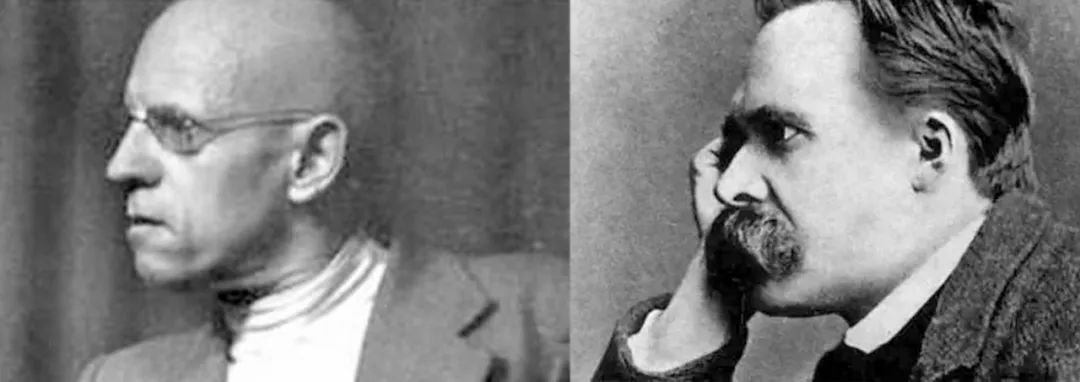
One of the most important things Foucault has done is to point out a risk to this path that had previously seemed to be underestimated. At the beginning of the article, we mentioned "panopticism" as a diagnosis, and its question can be roughly phrased as: If modern society looks so well-ordered and beautiful, why do so many of them feel so incomparable Anxiety and depression?
To sum up, Foucault's response can be summed up as follows: the former manifestation of power lies in punishment, such as the grand scene of public death, which represents the natural impulse of human animality and the catharsis of cruel pleasure; Deprivation", which allows prisoners to live without dignity like worms, and now the discipline lies in the "deprivation of darkness", which makes it impossible for people to rest in true private darkness.
While this spectacle of physical punishment is gradually transformed into gentle discipline and calculated control, this reduction in violence does not simply mean a great improvement in overall human morality. Foucault, continuing his philosophical argumentation of Nietzsche, reminds us of this turn from violent punishment to gentle discipline, this departure from the original state of nature, this "introversion" of human instincts that can no longer be released to the outside world. ", and ultimately "caused the most serious and unpredictable perversion" , and this "repressed pathology" is the essential reason why modern people often feel bored, anxious, depressed and miserable.
The first-hand content is published on the public account "Dune Research Institute", click here to jump to the original article
Like my work? Don't forget to support and clap, let me know that you are with me on the road of creation. Keep this enthusiasm together!



- Author
- More